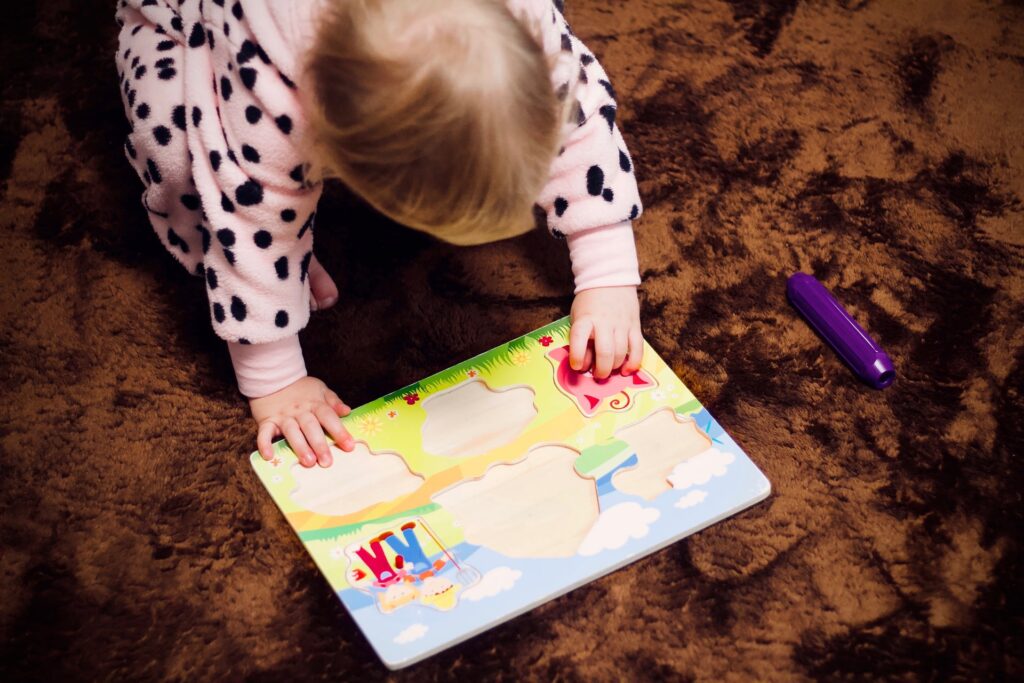Cognitive development delay refers to a delay in an individual’s acquisition of cognitive and mental functioning skills. Cognitive skills may also be referred to as thinking skills. They refer to our ability to think, learn, and problem-solve.
This can mean different skills according to age – cognitive development is measured according to age-appropriate milestones. Cognitive delay can also impact other areas of an individual’s development, including their social and communication skills. It may also have a consequent impact on their behavior, for example, children who struggle to concentrate in school, or struggle to complete set work, may act out of frustration or boredom.
In severe cases, this development delay in babies or development delay in toddlers may be considered permanent, and be known as a cognitive disability or intellectual disability. Examples of these include dyslexia and a wide range of other learning disabilities, as well as ADD (attention deficit disorder), and ADHD (attention deficit hyperactivity disorder).
Examples
- Speech and language delay, issues with vocabulary acquisition, and use of language, either spoken or written.
- Learning difficulties, including diagnosable ones such as dyslexia, also including more general struggles and difficulties with learning. This might include issues with memory, information retention and processing, problem and puzzle solving, as well as comprehension and reasoning skills.
- Difficulties with everyday tasks, that involve coordinating thought and action, such as getting dressed, or following a morning routine to get ready for school. In a very young child, this might look like an inability to understand what basic objects are used for – for example, to not be able to understand what a toothbrush is for.
- Is not able to follow simple instructions, as reasonably expected for their age.
- Struggles to concentrate or focus for reasonable periods, according to age.
Cognitive delay may be identified in toddlers, or it may be something that is identified once a child starts school. Early signs of cognitive delay in toddlers would include delays or difficulties in learning how to count, identify colors and shapes, to complete basic, age-appropriate puzzles or games.
Causes
Many factors may contribute to and cause cognitive delay. Sometimes cognitive development delay and cognitive disability are the symptoms of a rare disease or genetic syndrome. Down syndrome is one of the most well-known examples of this cause.
Cognitive delay may also be the result of neglect or abuse during the early years of a child’s life. A lack of stimulation, and nurturing, can contribute to cognitive development delay, and mean a child does not have opportunities to develop their thinking and intellectual skills.
Neurological disorders may also be one of the causes of cognitive delay. Autism spectrum disorder is one of the most well-known examples of this. There is some research to suggest that environmental factors, including exposure to toxins (lead poisoning as one example) during pregnancy or after birth, may cause cognitive delay.
Excessive exposure of a fetus to alcohol or other dangerous substances, due to substance abuse by the mother during pregnancy, may also cause cognitive delay. Fetal alcohol syndrome, as a result of alcohol use during pregnancy, is a known cause of cognitive delay.
In some cases, it is believed that a premature birth or oxygen deprivation during delivery and birth may contribute to and cause cognitive delay. In other cases, there may be no known cause.
What next?
If cognitive delay is suspected then the first person to consult is a medical professional or doctor who can help place this delay in the context of age-appropriate cognitive skills development.
Early intervention, through the form of targeted support and therapies, may help some individuals progress with their cognitive delay, allowing them to catch up with age-expected cognitive development milestones. In other cases, this may not be possible but may mean the provision of important support for someone to live long-term with cognitive disabilities.
If cognitive delay is suspected to be one of the symptoms of a rare disease, then a referral to a genetic counselor will be made to explore this possibility within the context of a genetic diagnosis.



